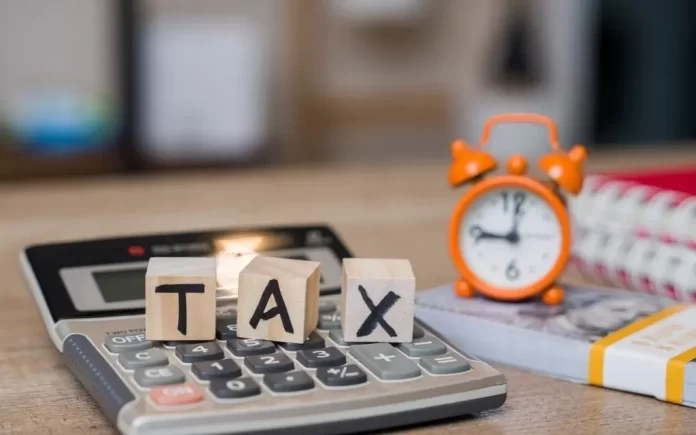Explore Estonia’s tax rates for non-residents, including income from entrepreneurial activities, art or sports performances, rent, licenses, investment funds, interests, dividends, and property sales.
In Estonia, the most commonly applied income tax rate is 20%. This applies to both residents and non-residents of Estonia. However, incomes of certain kinds can be taxed at reduced rates. Besides, there are some differences in the taxation rules for residents on the one hand and non-residents on the other one. Below we discuss the tax rates on the main types of income that non-residents of Estonia can make. After that, we highlight the central differences between taxes for residents and taxes for non-residents in Estonia. We are going to provide the tax rates applicable in Estonia to the following types if income:
- entrepreneurial activities;
- art or sports performances in Estonia;
- rent;
- licenses;
- investment funds that possess real property;
- interests;
- dividends;
- property sale.
Entrepreneurial activities
If a non-resident legal entity in Estonia obtains an income, the tax is paid at 10% and the income has to be declared in Attachment 2 to the TSD form. To be able to declare the income, the non-resident company has to obtain a tax code from the Tax and Customs Board of Estonia. The tax rate applies to residents of the countries that cooperate with Estonia in fiscal matters.
However, if the non-resident company is a resident of a country that does not cooperate with Estonia in fiscal matters, its income made in Estonia is taxed at a standard rate of 20%. Such countries used to be referred to as ‘tax havens’ or ‘low-tax jurisdictions’ but now they have changed their description in the Estonian fiscal legislation. These countries are now called ‘uncooperative in fiscal matters’.
Since October 17, 2023, the list includes the following countries: C 17 октября 2023 список выглядит следующим образом: American Samoa, Anguilla, Antigua and Barbuda, Bahamas, Belau, Belize, Fiji, Guam, Panama, Samoa, Seychelles, Trinidad and Tobago, Turks and Caicos, U.S. Virgin Islands, Vanuatu, Russian Federation.
Please note that the list of countries is compiled by the EU authorities and it can change. Actually, it is revised twice a year – in February and October. If the two lists published within a single fiscal year contain different sets of countries, the list that is more favorable for the taxpayer is referred to.
Art and sports performances
The income obtained by a non-resident in Estonia from an art performance or a sports competition is taxed at 10% unless the tax agreement between Estonia and the foreign country where the artist/ sportsperson comes from provides conditions for certain tax reductions.
This may be the case if the artistic or sports activities are partially financed by the Governments of the corresponding countries. Similarly, the municipal authorities can take part in financing artistic or sports events. Thus, a bilateral tax agreement can reduce the tax rate for artists and sportspeople.
Rent
The tax on the income derived from letting residential accommodations on a lease is 20%. At the same time, 20% of the rent pay can be deducted from the taxable income to compensate for the costs of maintaining the rental property.
Licenses
The tax rate applicable to royalties and license fees is 10% in Estonia. Depending on the country of the taxpayer’s residence, the bilateral tax agreement may provide an opportunity to pay less in taxes. For example, rent of licensed equipment is taxed at 5% in many countries and it is not taxed in Estonia at all. The notion of ‘license fee’ can have different interpretations in the Estonian Income Tax Act and in the bilateral tax agreement with a foreign country.
Interests
As a rule, a non-resident of Estonia does not have to pay any taxes on the income that he/ she derives from interests. Some exceptions apply though.
Dividends
Dividends paid to a non-resident legal entity in Estonia are not taxed in the country.
Property sale
As a rule, the agreement between Estonia and a foreign country on double taxation avoidance specifies that the seller of property is taxed only in the country where the property is located. If a non-resident of Estonia sells property located in Estonia, a tax is due. If a non-resident sells property located in a foreign country, no tax is due in Estonia.
Benefits of becoming a tax resident of Estonia
Why would you want to become a tax resident of Estonia when both residents and non-residents pay taxes at the same rate: 20%? The matter is that taxation rules for non-residents in Estonia are a bit different from the rules for residents. Low-income fiscal residents of the country have a non-taxable minimum amount of income while non-residents cannot enjoy this advantage.
Currently, if you have a salary of 1,200 euros per month and you are a fiscal resident of Estonia, 500 euros are tax-exempt for you. Consequently, a resident of Estonia will get 1,060 euros net while a non-resident will get only 960 euros. If your salary is higher, the tax-free amount becomes smaller and it equals zero euros when your salary reaches 2,100 euros per month.
We have to note that the Government of Estonia is planning to raise the non-taxable amount to 654 euros. That means that a salary of 1,200 euros will probably leave you with 1,090.8 euros net if you are a fiscal resident of Estonia.
It is also important to realize that you have to submit an application to your employer if you want to make use of the tax exemption opportunity. If the Tax and Customs Board determines that you are a tax resident of Estonia, you will have to pay no taxes on the first 500 euros that you make. Otherwise, your employer will have to pay the taxes at the rates applicable to non-residents of Estonia.
In addition to that, the second pension pillar is out of reach for you if you are not a fiscal resident of Estonia. You will have something to miss in this case because the state adds 4% to every 2% of your salary that you contribute to your future pension. You can think of the pension fund as an investment fund because you can take out whatever you have accumulated at any time if you want to leave Estonia and go home before you retire.
Disadvantages of tax residence in Estonia
If you are a non-resident of Estonia, you pay taxes only on the income made in Estonia. However, residents of Estonia are taxed on their global income. This means that if you are paid a salary in a foreign country or if you sell some real property there you may have to pay a 20% tax in Estonia. There are important exceptions though.
For example, the income derived from selling a piece of property is tax-free if you sell 1 piece of property within 2 years. Besides, the foreign property that has been handed down to you by your predecessors or has been given to you as a gift is not taxed in Estonia.
How to obtain tax residence in Estonia
The Tax and Customs Board grants the status of fiscal residence to foreign nationals. If you live in Estonia for more than 183 days per year, you automatically become a fiscal resident of the country. If you want to obtain the status sooner, you can file an electronic application to the Board. You have to have an electronic signature to be able to do so. If you do not have an electronic signature, you can pay a visit to the nearest service bureau and file an application there in person.






